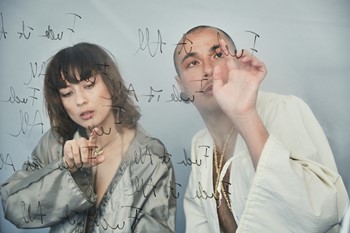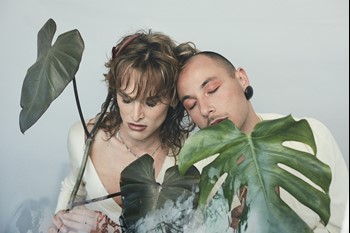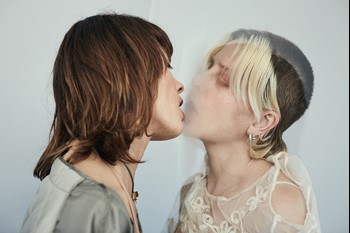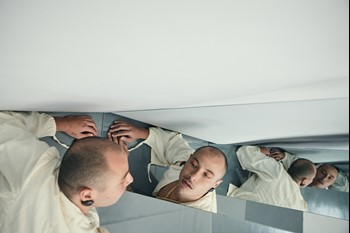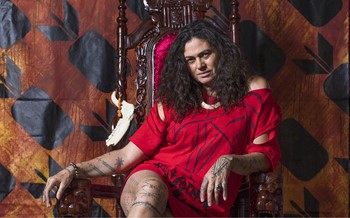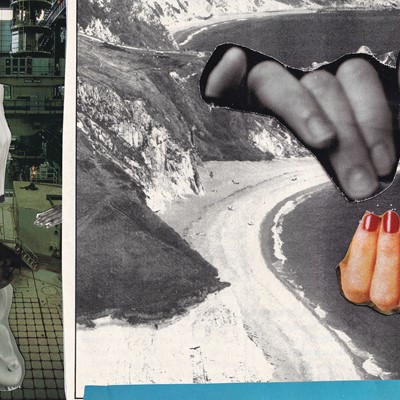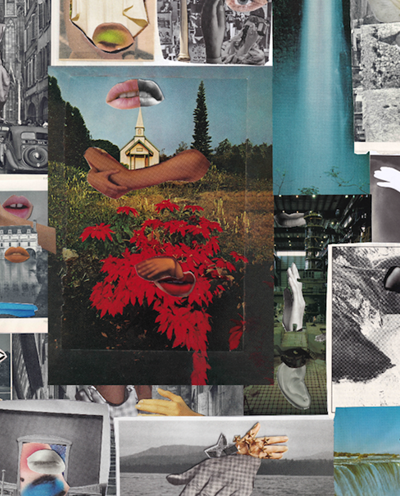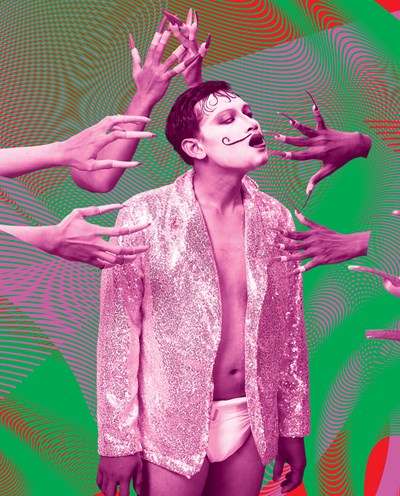
LIVE FUTURES 2021
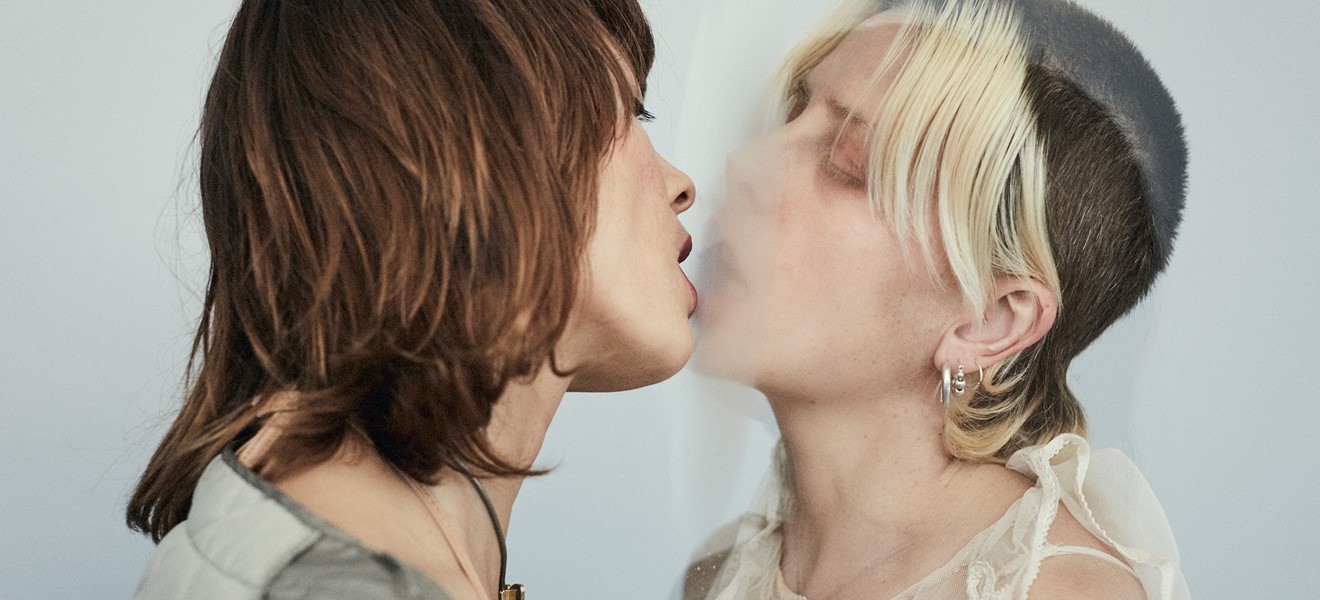
LIVE FUTURES is a series of curated public conversations that explore the pivotal role of artists in defining the new civic life we are entering, in a sustained period of disruption and change.
The LIVE FUTURES platform celebrates the insight of artists, as thought leaders and critical players in the new social, cultural, and economic paradigms that are being built and renewed in the wake of the pandemic and other global events. Accessible to national and global audiences, LIVE FUTURES will complement the voices of artists with those of specialists from other disciplines in order to dive deeply into the possibilities of our future world.
All LIVE FUTURES events will be live streamed on Vimeo, and embedded on our website. All the events in the LIVE FUTURES Series will be available on demand for 7 days after they air, through our digital experimental art channel LIVE ON-THE-LINE. Each event goes for 2 hours.
LIVE FUTURES 2021 PANNELISTS
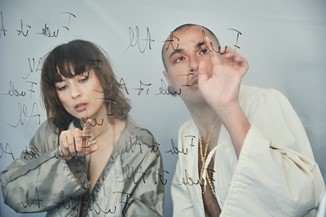
Curator
Dr Léuli Eshrāghi
This conversation brings together key voices working across performance, politics and cultural restitution to consider the transformative potential of Indigenous knowledge systems and the activation of the collective through gathering.
How might the renewal and reinstatement of Indigenous knowledge generate ancestral-futurist kinships and possibilities beyond the carceral, the fascist and the hateful? How much might we gain by restoring ceremonial-political gatherings that centre sovereignty in shared processes, shared feasts, shared care for lands, waters and airs?
Afflicted as we are by the intersecting crises of habitat, disease, race hierarchy and extreme violence, this conversation offers windows into humility and connection. It is inspired by the continuity of freshwater courses despite extractive industries and settler colonies, and of saltwater bodies reaching from Gadigal Country to every shore of the Great Ocean.
Confirmed Panelists:
Tanya Lukin Linklater
Amrita Hepi
More to be announced.
Confirmed Panelists:
Tanya Lukin Linklater
Amrita Hepi
More to be announced.
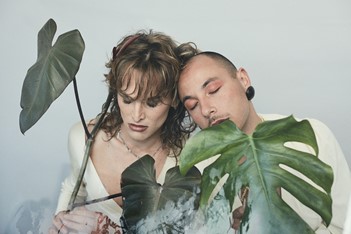
Curator
Holly Williams
As the inevitability of global warming becomes impossible to ignore and human-caused extinctions become widespread, how might the body-centred practices of the deep ecology movement, activist interventions and the work of contemporary artists inform where we go from here?
How can we reinstate different relationships between humans and the network of animals, organisms, weather and environment that we are inextricably connected to? How can we constructively meet the grief, fear, rage and guilt that marks this time? Where might hope lie?
Panelists
Ceridwen Dovey
Luke George
Daniel Kok
Charles Koroneho
Rowena Potts
John Seed
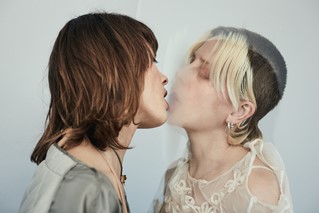
Curator
Dr Zahra Stardust
In an age of skin hunger and physical distancing, how can art reimagine what constitutes intimacy and connection? If our touch is predominantly mediated through sensors, screens and surfaces, what does this mean for the future of radical intimacies?
Artists, sex workers and queer communities are pioneering innovative responses to the global pandemic, including sharing sex-positive public health messaging, mobilising funds for mutual aid and creating COVID-safe experiences of intimacy. Some have engaged new technologies that allow for unique sensory experiences and connections across time and space.
In this panel, artists reimagine touch, intimacy and sexuality at a time of global pandemic, big tech and sexual surveillance. When government solutions are founded upon assumptions of nuclear families, monogamous relationships and heteronormative households, how do we nurture and sustain queer intimacies? As always, we look to artists for creative, experimental and boundary-pushing practices that take us outside existing social, technological and economic imaginaries.
Panelists
Bhenji Ra
Queenie Bon Bon
Cherine Fahd
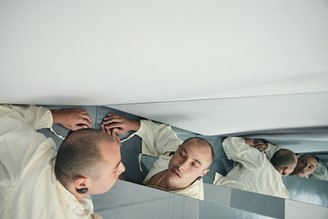
Curator
Clothilde Bullen
Bequest technologies—such as keeping places—and other forms of direct action, offer a range of options by and for First Nations peoples to support critically important opportunities for cultural continuity. The increasingly escalated destruction of natural environments, within which First Nations cultural knowledge is embedded, requires us to urgently re-think how these knowledges are retained if access to Country is denied.
Within urban environments, different technologies must be embedded that support access to disrupted custodianship of Country, in order to create new economic, ideological and social understandings of the place of First Nations peoples. Guests in this conversation will offer the audience a variety of understandings of—and challenges to—accepted connections and histories, and a glimpse of what the new normal could be.
Panellists
To be announced.

KEYNOTE LECTURE, ROSANNA RAYMOND
WOULD THE REAL TUSK PLEASE STAND UP?
“As an artist, my body has become a powerful space for my art practice and cultural heritage to come together. My body has become a site of resistance, allowing me to traverse the genealogical and geographical space, collapsing time, helping to re-render and privilege my Moana body.” - Rosanna Raymond
For Liveworks’ 2021 Keynote Lecture, Auckland-based artist Rosanna Raymond draws from the warps and wefts of more than 30 years of experience in the creative arts. Fearlessly fusing artistic disciplines and finding new methods for the strengthening and evolution of Pacific cultures, Raymond’s work draws strongly from her Samoan heritage and imagines new possibilities for artistic practice.
Raymond’s Keynote Lecture unpacks the unique and hybrid ways in which she centralises the Samoan Indigenous index of the Vā as an embodied practice. Vā is a Samoan term for space—although this space is not linear, or indeed empty. The Vā is an active space: it binds people and things together. It forms relationships and necessitates reciprocal obligations. And as Raymond explains, “I feel the Vā needs a body, a performative body that acti.VĀ.tes the mauli (spark of life) as a vessel for the past, present and future”.
Would the Real Tusk Please Stand Up? is a visceral offering incorporating aural, visual and performative elements weaving in and out of spoken words—words both academic and artistic, land and ocean, SaVAge and Sisterly—to share the insights afforded to Raymond by her lifelong engagement with the Vā.

